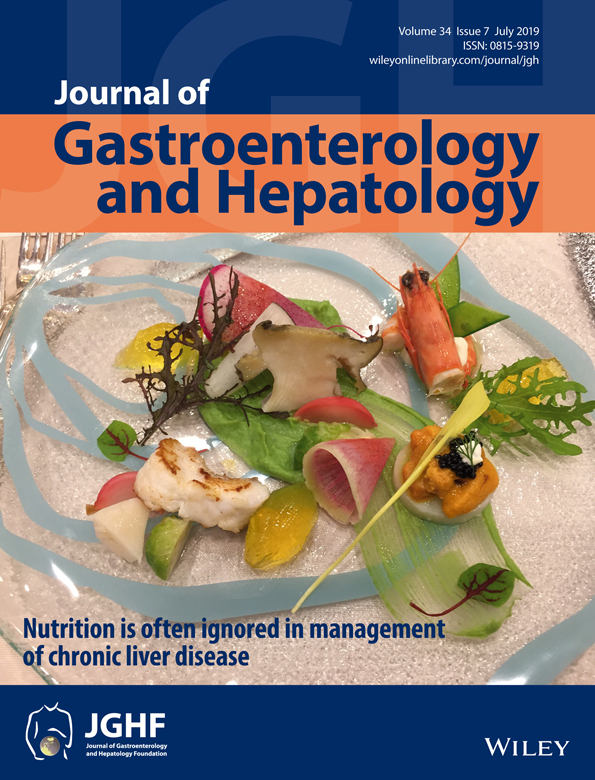Caspase-independent hepatocyte death: A result of the decrease of lysophosphatidylcholine acyltransferase 3 in non-alcoholic steatohepatitis
Abstract
Background and Aims
Lipotoxicity causes liver inflammation, which leads to non-alcoholic steatohepatitis (NASH). Lysophosphatidylcholine (LPC) is a causal agent of lipotoxicity. Recently, lysophosphatidylcholine acyltransferase (LPCAT) was identified as an enzyme that catalyzes the esterification of LPC, which potentially decreases LPC levels. However, the effect of LPCAT in lipotoxicity of the liver is not fully understood. Our aim was to determine whether LPCAT attenuates lipotoxicity in the liver.
Methods
Mice fed a high-fat diet with sucrose (HFDS) or high-fat diet without sucrose, and Huh-7 cells treated with palmitate were used.
Results
Mice-fed HFDS showed advanced liver fibrosis as compared with mice-fed high-fat diet or normal chow. Lysophosphatidylcholine acyltransferase 3 (LPCAT3) mRNA expression in the liver was significantly decreased in the HFDS liver, and LPC content in the HFDS liver was significantly increased as compared with the other groups. When Huh-7 cells with short hairpin RNA-mediated knockdown of LPCAT3 (shLPCAT3 cells) were treated with palmitate, the intracellular LPC concentration and cell death were significantly higher than those in wild-type Huh-7 cells. Palmitate-induced cell death in shLPCAT3 was attenuated by a combination of receptor-interacting protein kinase 1 inhibitor with pan-caspase inhibitor. In contrast, intracellular LPC and palmitate-induced cell death were significantly lower in LPCAT3-overexpressing Huh-7 cells than in wild-type cells.
Conclusion
Depletion of LPCAT3 in a mouse model of NASH leads to caspase-independent cell death, and LPCAT3 is a potential therapeutic target in NASH.




